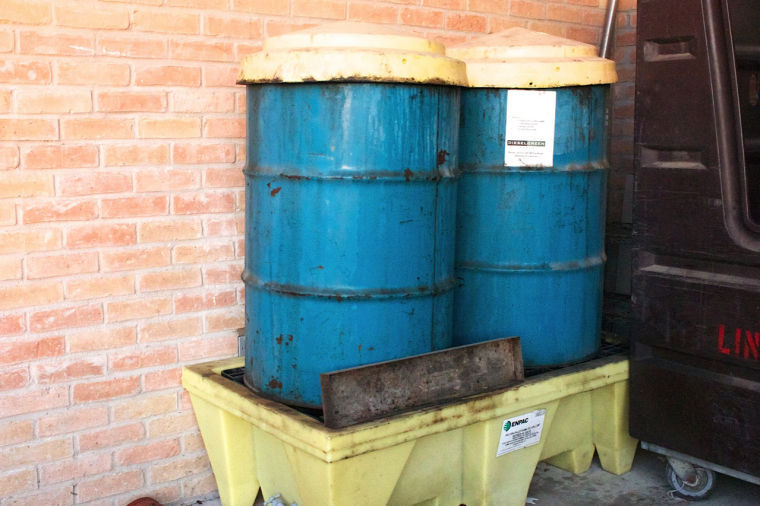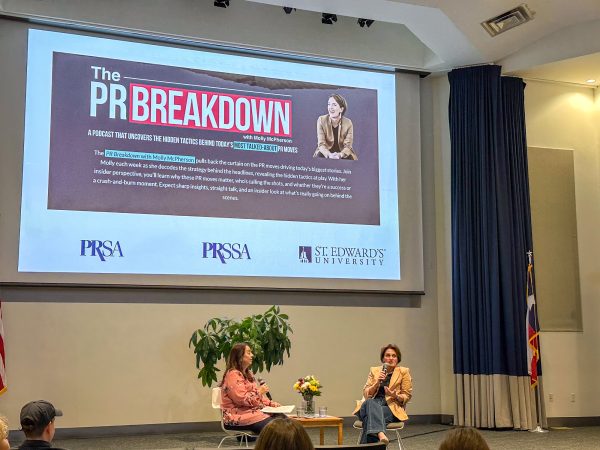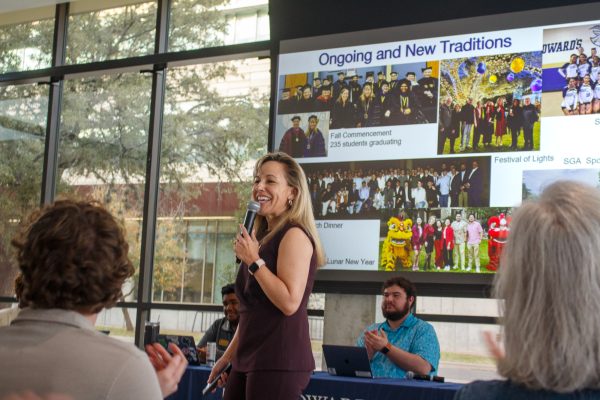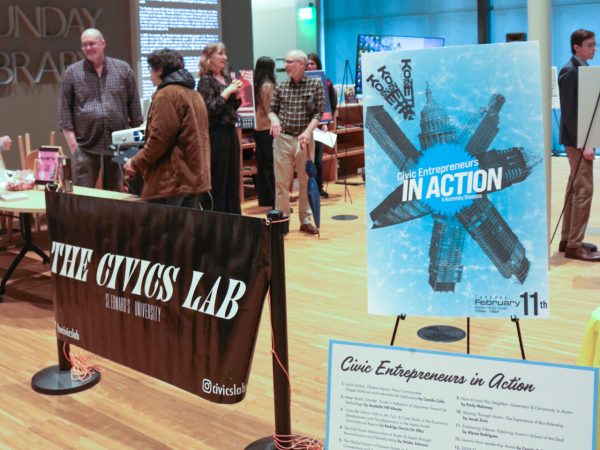Bon Appétit provides new compost bins in campus dining halls
Compost bins are now present in dining halls on campus after a year of discussion between the university and Bon Appétit.
Diners can now dispose of food scraps in the bins marked “compost” at the trash stations in the cafeterias in Ragsdale, Hunt Hall and the Huddle. Napkins, to-go containers and cooked food products can be composted in addition to fruits and vegetables. There are also receptacles in the kitchens for Bon Appétit employees to separate compostables from other kinds of waste.
The compost bins are then emptied into larger barrels located out on the loading docks outside each cafeteria. The barrels can weigh anywhere from 300–400 pounds when full. The waste service company Break it Down empties the barrels three times a week, according to Bon Appétit General Manager Michael Smith.
Composting of food waste generated on campus does not occur on campus for a number of reasons.
“[T]he logistics, hazards, regulations, pest control and permits associated with composting food waste on-site make it impractical and financially prohibitive,” said Brian Burns, assistant director of the Facilities Department.
Bon Appétit is responsible for managing the composting program and paying for a pickup service.
“It’s not cheap, but I think the benefit outweighs the cost, personally. We are doing a good thing,” Smith said.
In the future, the university may pay for some of the fees required to employ Break it Down.
“If the diversion of food waste reduces the frequency of regular waste collection from the dining facilities, the university will use the savings realized to reduce Bon Appétit’s food composing expense,” Burns said.
Over four tons of food scraps have been collected for composting on campus since Jan. 14, Smith said. Smith expects the campus will generate a total of six to seven tons of compost by the second week in February.
“If we continue to be successful with [the program] then there will be additional pickups and additional barrels,” Smith said.
Several groups on campus are working to raise awareness about the new program. Students for Sustainability, SFS, the environmental interest group, worked closely with Smith to organize tabling events and create signage to instruct diners on what belongs in the bins.
“We have a lot of work to do, but I have seen a change,” Miranda Coutee of SFS said.
Coutee and fellow SFS member Morgan Greeves attended meetings with Smith and the Facilities Department during Fall 2012 to provide student input on initiating a composting program on campus.
Smith said the program has been most successful in the South Congress Market in Ragsdale because the contents of the compost barrels include ‘dirty’ waste compared to the ‘clean’ compost collected from the containers outside Hunt.
Dirty waste means that the compost includes napkins and to-go containers in addition to food and is an indication that diners are using the compost bins.
‘Clean’ compost refers to waste that is mostly food scraps and indicates that composting at Hunt is primarily occurring behind the scenes in the kitchen, rather than from diners and Bon Appétit staff.
“We just need more education at Hunt,” Smith said.
Currently, Kelby Moore stands near the waste station at Ragsdale to talk to diners about what they can compost, recycle and what belongs in the regular trash.
Moore participates in the GO Project, a transitional program for college-aged students attending schools in the Austin Independent School District. Participants in the GO Project work in the South Congress Market during the week performing tasks like cleaning tables and raising awareness about how to properly compost.
“I just wanted to … I felt like why not do something just to help out,” Moore said.








